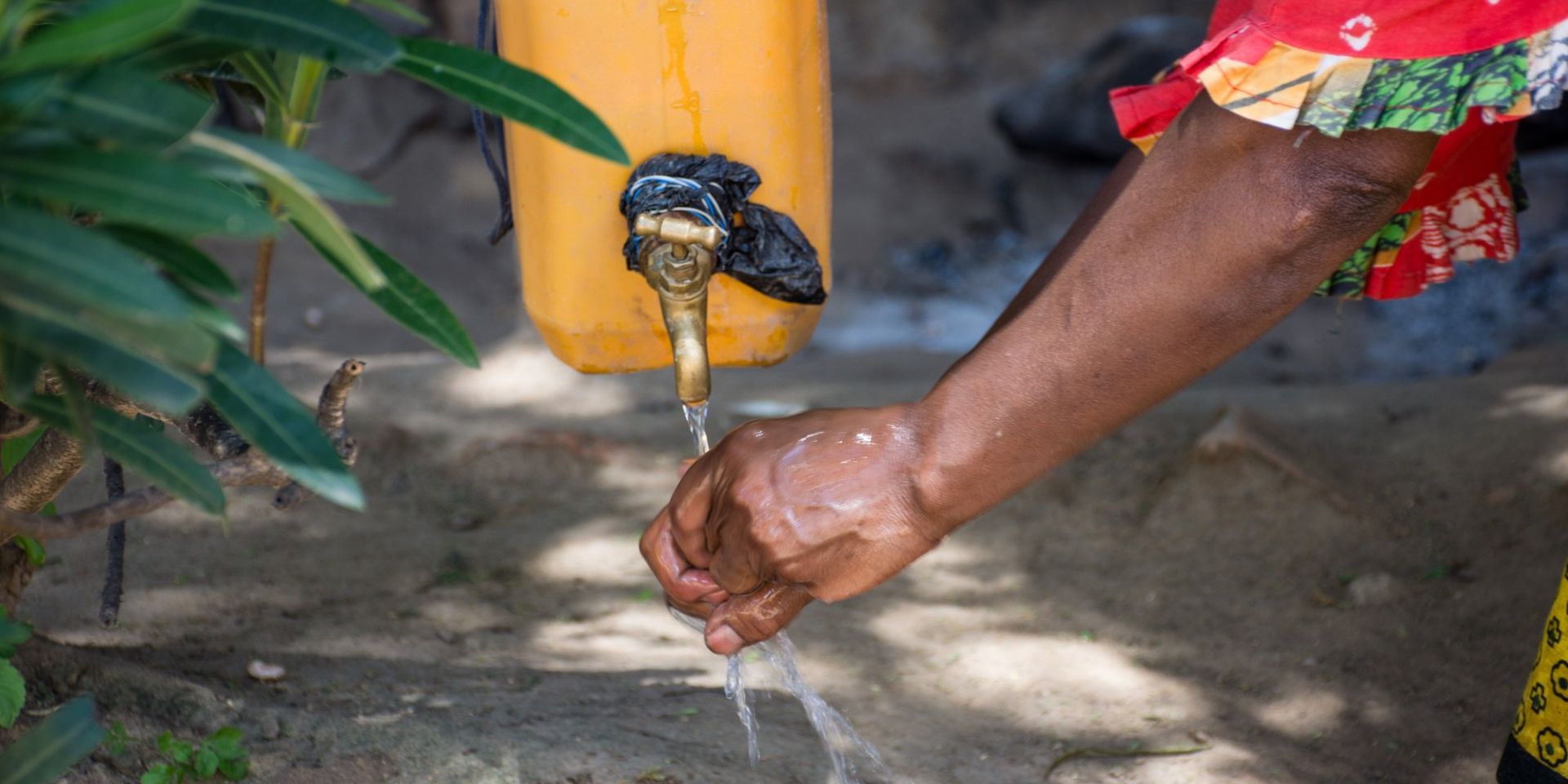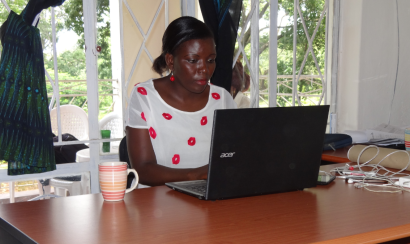Essential Jobs During the COVID-19 Pandemic
In the last 14 years, the One Acre Fund portfolio has grown from serving a handful of farmers to over a million families, and, with it, the organization’s staff complement — more than 7,500 employees. Every season, we are rewarded to see farmers’ hard work translate into better, higher yields.
In the era of COVID-19, with phrases like ‘essential work’ ingrained in our daily vocabulary, we spoke with two staffers to find out how their roles have supported our work with farmers during a global health pandemic.
Peter Aming’a — Payroll, HR

Sustaining personnel support and operational continuity
Peter, who has worked with One Acre Fund since 2013, manages payroll functions — from effecting changes to salaries, generating payslips, processing payments due to government statutory bodies, preparing reports, and handling other general payroll matters.
In the space of weeks, when the pandemic forced us to reimagine our service delivery model, HR allowed the organization to continue functioning amid disruptions, and to continue supporting its staff and farmers. Peter cherishes the thought of having been part of that experience and felt the team really came together in this moment.
“Payroll works with strict timelines. Besides our internal standards, the function is governed by labor laws and other government statutes. These processes depend on different stakeholders working together to appraise, approve, and sign off. Under normal circumstances, these teams are easy to coordinate. With remote working, I depended on the actors to execute processes without physically interacting with them. I have been tremendously impressed by the efficiency they have displayed. It was my confirmation that we indeed are a family of leaders,” Peter says.
So, what was it like suddenly having to manage personnel functions remotely during a pandemic? Peter describes the process as eye-opening and one requiring rapid re-adjustment.
After years of working through the template of managing personnel, 2020 is the year he will always associate with ‘going back to the beginning’. Caught in between giving continuity to the processes he had become accustomed to and trying to reboot some at the same time, Peter found himself constantly referring to our mission statement — ‘a future in which smallholder farmers achieve big harvests, support healthy families, and cultivate rich soils’ — for inspiration, and to remind himself where he fits in the bigger picture.
“More often than not, people do not consider the HR function as crucial to the overall success of the organization because HR does not deal with core operations. However, human resources, as a personnel support function, is the pillar that supports the rest of the departments to execute their duties. If you remove HR from the matrix, what you are left with are teams that cannot hire, compensate employees, handle disciplinary cases professionally, and employees without a point of reference,” Peter says.
Building social capital
Having to work from home has taught Peter to look at the idea of trust more intimately in terms of how he works, and what employees expect of each other.
“Trust is everything,” Peter says. “It is often discussed in relation to customers, but there is so much more to it. We have made the commitment and effort, in our department, to be forthright and prompt in how we relate with our colleagues, communicate company policies, and respond to employee questions, concerns and requests. Personally, I have been keen to shed the transactional tag often associated with HR, to be more intentional about my interactions.”
To do this, Peter thinks the key is to consider staff welfare first.
“When the employer honors their end of the bargain, everything else tends to fall in place regarding employee needs. COVID has been a difficult period all through. At a personal level, by making sure that employees’ salaries and benefits are processed when they are due, and addressing arising concerns, I take away a load off the shoulders of my colleagues, and allow them to continue serving farm families effectively and wholeheartedly,” Peter says.
Sally Minayo — Program Design, Enrollment Project Specialist

Ensuring farmers’ access to supplies amid COVID
Joining One Acre Fund in 2011, Sally works on the farmer outreach program, incentivizing more than 408,000 farmers in Kenya to work with us. Her day-to-day job involves setting the Kenya program’s marketing strategy to communicate which types of seed, fertilizer, trees, solar lights, and other products we offer to farmers in a given year; and developing strategies around how to encourage farmers to enroll. Sally also analyzes enrollment data to identify patterns that might change our approach to enrollment, such as region-specific challenges.
In a nutshell, it is Sally’s job to ensure that as many farmers as possible take advantage of the quality farm supplies we offer. The nature of the pandemic presented a new challenge for Sally as our marketing strategies have traditionally involved large group gatherings, in which many farmers would come together.
COVID’s ensuing restrictions made it impossible to utilize group marketing campaigns, so Sally had to find new ways to help farmers learn about our products and services.
Since our staff would not be able to physically pass products around for farmers to inspect, Sally and her team arrived at the idea of using videos to market new products instead. With the new videos, our field staff can show farmers the products available for purchase via tablet, from 2 meters away. When our enrollment launched this September, our Kenyan field staff were not only equipped with masks and sanitizers, but they also now had at least half a dozen videos to help them better show farmers the various products they could choose to order.
“Aside from feeding populations, agriculture is an important contributor to the country’s economic progress, which is why the government rightly designated the sector as ‘essential’. I am glad that we can still reach farmers amid prevailing restrictions, particularly when the global health pandemic has crippled economies and left people with little resources. Without food, other equally essential sectors wouldn’t function. For example, doctors need to feed before they can treat patients, and we make that possible. I am proud to play my part in driving this critical sector,” Sally says.
Despite the challenges COVID has brought, Sally sees a silver lining with some aspects of the new normal of work proving both popular and effective.
“Sometimes we embrace digital platforms for adaptational reasons, but COVID-19 has been a real eye-opener in terms of digital transformation. We shifted away from processes that involved in-person touchpoints. We changed some processes, not because we were confident the new ones would deliver better but because the old ones could no longer work,” says Sally.
Sally also found that some of the changes brought useful personal revelations for how she works.
“I have learned that I don’t need to be in an office to be good at my job. We have delivered on our commitments to farmers because we are open to change, including embracing change beyond our control, and making it work for us,” Sally says.
A truly critical sector
Beyond the demands of the pandemic, Sally believes that her work as an enabler in the food production system is particularly important because of the vital role the agriculture industry plays in the economy.
“Every morning, I reflect on my reason for doing what I do: the farmers we serve. They are our most important stakeholders. It inspires me to know that I can make a difference in their lives, and they in turn can work to keep the country food-secure. Millions of farm families count on us — on me — and I cannot afford to let them down,” says Sally.




